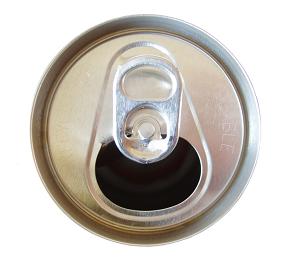 Being pulled over for DUI or DUAC is one of the most frightening situations you can be in, but knowing what to do beforehand can make the difference between dismissal and conviction.
Being pulled over for DUI or DUAC is one of the most frightening situations you can be in, but knowing what to do beforehand can make the difference between dismissal and conviction.
First, as DUI lawyers in South Carolina, let us say that you should never drink and drive. If you go out, have a designated driver—or if you do have too many drinks, call a friend or taxi to take you home. However, if you’re arrested on suspicion of DUI or DUAC, take the following steps to give your DUI attorney the best chance of defending you.
Before anything happens, know which lawyer you would call, and do it as soon as possible.
Put a South Carolina DUI attorney’s number in your cell phone, and make sure your family members have the number also, just in case. Better to have it and never need it than to need it and not have it.
Be aware that the entire arrest must be videotaped.
While there are exceptions to this requirement, generally speaking from the moment you’re pulled over until you’re on your way to the police station, the arrest must be videotaped. This includes the Miranda Warnings, the entire testing procedure, and a 20-minute observation period. The police must perform and tape the breath test within two hours of pulling you over.
While you may be experiencing a variety of emotions during this process, our best advice is to remain polite and cooperative.
Remember that you have the right to remain silent.
You are not required to answer any questions that a police officer asks you. Your right to remain silent cannot be held against you, but if you speak and seem to be slurring your words, that can be used to convict you. Further, it is never a good idea to be rude or threatening towards an officer. This type of behavior only further complicates future negotiations.
Know that you have the right to refuse roadside sobriety tests.
Field sobriety tests can be extremely difficult for even sober individuals to perform correctly. This is especially true if you have a medical condition that hinders your capabilities. The time of day, location and terrain of the incident site can all further impact your ability to successfully complete these test.
A refusal to take a field sobriety test may not be considered disobeying a police command.
Understand the consequences of refusing a breathalyzer.
You have every right to refuse to blow into a breathalyzer, but as South Carolina is an implied consent state, your license will be automatically suspended for six months if you refuse. There are, however, alternative license options available that your attorney can further explain to you.
Even if you’re too nervous to remember all of these tips, taking just one or two will help your SC DUI lawyer defend your case.
In South Carolina, it is illegal to drive while under the influence of alcohol and / or drugs. The drunk driving laws are complex and the fines are expensive, so if you’re arrested for DUI, you should contact a criminal defense lawyer as soon as possible after arrest.
Blood Alcohol Content
The blood alcohol content (BAC) threshold for driving with an unlawful alcohol concentration (DUAC) is 0.08% and for DUI is 0.10%, and anyone arrested for DUAC or DUI faces the risk of losing their driving privileges in addition to paying fines and attending the Alcohol and Drug Safety Action Program (ADSAP).
Implied consent and License Suspension
By operating a motor vehicle in South Carolina, you consent to submit a sample of breath, urine, or blood to test for alcohol or drugs. You can refuse the test, but that triggers an automatic license suspension for six months. In the event you submit to the test, and it is determined that your BAC is 0.15% or higher, your driving privileges are automatically suspended for 1 month.
There is an opportunity to challenge a suspension, however, by filing for an Administrative Hearing within 30 days of the suspension date.
During the time your regular drivers license is suspended, there are a variety of alternative driving license options available depending on the individual and the circumstances surrounding the case. This is another important reason to contact a South Carolina DUI attorney immediately for representation, should you find yourself in this situation.
Videotaped observation period
South Carolina law requires the arresting officer to videotape a defendant’s conduct at both the DUI arrest and breath test sites. There are numerous requirements for these videos. For example, the incident site recording must begin no later than the activation of the officer’s blue lights and include any field sobriety tests as well as the person being advised of their Miranda rights. At the breath test site, South Carolina law mandates that the entire test procedure be recorded, including a 20-minute observation period. Of further importance, any breath sample must be taken within two hours from the time of arrest.
Although there are special exceptions that allow officers to deviate from the videotape requirements, they are limited and specific. Therefore, an officer’s failure to comply with the videotape procedures may often result in a case dismissal.
DUI penalties
A first offense can result in a fine up to $1,000.00 and imprisonment for up to 90 days. A second offense can warrant a fine up to $6,500 and up to three years in jail. A third offense penalty include a fine of up to $10,000.00 and up to five years in jail. A fourth or subsequent DUI is a felony and carries up to seven years in jail.
Repeat offenses and Interstate Driver’s License Compact
A second DUI in any 10-year period is a repeat offense. A fourth DUI conviction is a felony no matter when or where the other three convictions occurred. South Carolina reports convictions to other states through the Interstate Driver’s License Compact, an agreement among 45 states to report convictions and actions taken against drunk drivers. Every state agrees to reciprocate, meaning that the action taken in one state against a driver will be taken in any other Compact state.
As with any other criminal defense matter, contacting a DUI lawyer as soon as possible ensures your rights are protected.
Image above of Chancho (to the right), the Uricchio Law Firm office pup, with his buddy.
As motorcycle accident attorneys and riders ourselves, we frequently see people riding with their dogs. While we’re dog lovers and think taking pups along is a wonderful idea, all too often we see riders not taking the precautions for their pets that they should. Following are some questions to ask yourself along with ideas to make your journeys with your dog safe and fun:
Does Rover like to ride?
The first question you need to answer is whether your dog should ride with you. Is your dog adventurous, or does he or she love lying on the couch and sleeping? If your dog is older or prefers to be indoors, he or she might not want to take long motorcycle trips.
How does your dog deal with the bike? A dog that gets nervous or sick likely won’t enjoy riding no matter how comfortable or secure you try to make him or her. This is not to say your dog can’t get used to the bike and eventually enjoy it, but we are saying that if he or she hasn’t ridden often, an extended trip isn’t a good idea right now.
When acclimating your dog to the bike, take it slow. Make sure he or she is comfortable with the sound first, then take a few rides, each one a little longer than the last.
Can your dog sit still and ride?
Some dogs settle in and enjoy the ride, while others bounce around and want to see everything that’s going on. How your dog acts will dictate how you secure him or her and what kind of carrying case you buy. Our next blog post will discuss carrying cases and other doggy riding accessories in detail.
Will you be able to focus on riding without being distracted?
No matter who or what your passenger is, you still need to be able to ride safely and focus all your attention on the road. If your dog fidgets or gets restless, you can be distracted—and if your dog is large and not used to the bike, his or her weight moving around could pose a problem.
Do you travel with your dog, and how do you keep him or her safe while riding?



